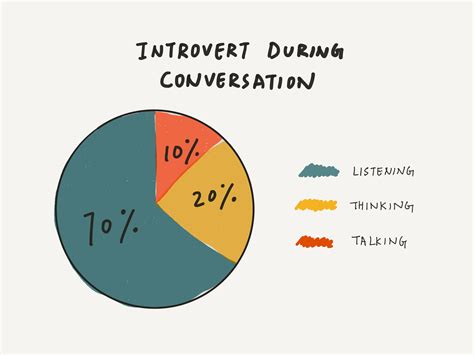
A high school counselor is raising concerns about a significant decline in students’ fundamental knowledge and skills, reporting that many graduates lack basic abilities in areas like telling time on an analog clock, writing checks, and demonstrating general life skills essential for independent living.
MOUND, Louisiana – A Louisiana high school counselor, going by “M. G.” on social media, has sparked a widespread discussion after posting a viral TikTok video detailing the alarming lack of basic knowledge among recent high school graduates. The counselor, with over 13 years of experience in education, expressed deep concern over students’ inability to perform everyday tasks and possess fundamental skills necessary for navigating adulthood.
In her video, M. G. lamented the fact that a significant number of graduating seniors struggle with tasks such as reading an analog clock, writing a check, addressing an envelope, or understanding basic concepts like cursive writing. These skills, once considered commonplace, now appear to be dwindling among young adults entering college or the workforce. “We’re talking about kids who are getting ready to graduate, and they can’t tell time on an analog clock,” she stated in her video. “They don’t know how to write a check. They don’t know how to address an envelope.”
M. G.’s observations have resonated with numerous educators, parents, and community members who have witnessed a similar decline in essential life skills. Many attribute this issue to a combination of factors, including increased reliance on technology, changes in educational priorities, and the impact of the COVID-19 pandemic on learning.
The shift towards digital devices and online platforms has undoubtedly transformed the way students learn and interact with information. While technology offers undeniable benefits, it has also inadvertently led to a decreased emphasis on traditional skills. With digital clocks readily available on smartphones and computers, the ability to read an analog clock has become less critical for many students. Similarly, the widespread use of online banking and electronic payments has reduced the need for writing checks, further contributing to the erosion of this skill.
Educational priorities have also shifted over the years, with a greater focus on standardized testing and academic subjects like math and science. While these subjects are undoubtedly important, the emphasis on test scores has often come at the expense of practical life skills that are essential for independent living. Budget cuts and resource constraints have further exacerbated the problem, limiting the availability of courses and programs that teach these skills.
The COVID-19 pandemic has also had a significant impact on students’ learning, with school closures and remote learning disrupting traditional classroom instruction. The shift to online learning has been particularly challenging for students who lack access to technology or struggle with self-discipline. As a result, many students have fallen behind academically and have missed out on opportunities to develop essential life skills.
M. G.’s concerns highlight a broader issue regarding the readiness of high school graduates for college, career, and independent living. The lack of basic knowledge and skills can have significant consequences for students’ future success. Graduates who are unable to manage their finances, communicate effectively, or solve problems independently may struggle to succeed in college or the workforce.
The ability to manage finances is a crucial life skill that is essential for long-term financial stability. Students who lack basic financial literacy skills may struggle to create a budget, manage their debts, or make informed financial decisions. This can lead to financial hardship and limit their ability to achieve their goals.
Effective communication skills are also essential for success in college and the workforce. Students who are unable to communicate clearly and effectively may struggle to collaborate with others, present their ideas, or resolve conflicts. This can hinder their ability to build relationships, advance their careers, and achieve their full potential.
Problem-solving skills are also critical for independent living. Students who are unable to think critically, analyze information, and solve problems may struggle to navigate complex situations, make informed decisions, and overcome challenges. This can limit their ability to adapt to change, achieve their goals, and lead fulfilling lives.
To address this issue, educators, parents, and community members must work together to ensure that students are equipped with the basic knowledge and skills they need to succeed. This includes incorporating practical life skills into the curriculum, providing students with opportunities to apply their knowledge in real-world settings, and supporting students’ social and emotional development.
Schools can incorporate practical life skills into the curriculum by offering courses in personal finance, career planning, and independent living. These courses can teach students how to manage their finances, prepare for job interviews, and navigate the challenges of adulthood.
Schools can also provide students with opportunities to apply their knowledge in real-world settings through internships, apprenticeships, and community service projects. These experiences can help students develop valuable skills and gain a better understanding of the world around them.
In addition to academic and practical skills, it is also important to support students’ social and emotional development. Schools can provide students with access to counseling services, mentoring programs, and extracurricular activities that promote social and emotional learning. These programs can help students develop self-confidence, resilience, and empathy, which are essential for success in all aspects of life.
Parents can also play a critical role in helping their children develop essential life skills. Parents can teach their children how to manage their finances, cook healthy meals, and maintain a household. They can also encourage their children to participate in extracurricular activities, volunteer in their communities, and pursue their passions.
Community members can also support students’ development by volunteering in schools, mentoring students, and providing them with opportunities to learn and grow. Community organizations can also offer programs and services that support students’ academic, social, and emotional development.
The challenges identified by M. G. are not isolated to Louisiana. Similar concerns have been raised across the United States and in other countries, suggesting a systemic issue within the education system. The widespread use of technology, while providing numerous educational resources, may also contribute to the decline in practical skills. The reliance on calculators, for example, could diminish proficiency in basic arithmetic. Similarly, the accessibility of GPS navigation may reduce the need for map-reading skills.
The situation underscores the need for a re-evaluation of educational priorities. While academic knowledge remains essential, it should be balanced with the development of practical skills that enable students to function effectively in the real world. This could involve incorporating life skills training into the curriculum, offering elective courses that focus on specific skills, or providing opportunities for hands-on learning experiences.
The reaction to M. G.’s video on social media has been overwhelmingly supportive, with many teachers and parents sharing similar experiences. This widespread agreement highlights the urgency of the situation and the need for prompt action. Some commentators suggest that schools should consider offering workshops or seminars on basic life skills, inviting community members to share their expertise. Others advocate for a more comprehensive approach, integrating life skills into the existing curriculum and providing students with ongoing support.
Moreover, some experts argue that the emphasis on standardized testing may be contributing to the problem. The focus on test scores can lead to a narrow curriculum that neglects other important skills. Schools may feel pressured to prioritize academic subjects at the expense of life skills training, which is not typically assessed on standardized tests.
In addition to the points raised by M. G., there are other essential life skills that students may be lacking. These include critical thinking, problem-solving, communication, and collaboration. These skills are not only important for success in college and the workforce, but also for navigating everyday life.
Critical thinking involves the ability to analyze information, evaluate evidence, and form reasoned judgments. Students who lack critical thinking skills may struggle to distinguish between fact and opinion, identify biases, or make informed decisions.
Problem-solving involves the ability to identify problems, develop solutions, and implement them effectively. Students who lack problem-solving skills may struggle to overcome challenges, adapt to change, or achieve their goals.
Communication involves the ability to express oneself clearly and effectively, both verbally and in writing. Students who lack communication skills may struggle to build relationships, collaborate with others, or present their ideas effectively.
Collaboration involves the ability to work effectively with others to achieve a common goal. Students who lack collaboration skills may struggle to participate in teams, share their ideas, or resolve conflicts.
To address these challenges, schools need to adopt a more holistic approach to education. This involves focusing not only on academic knowledge, but also on the development of essential life skills. Schools should provide students with opportunities to develop these skills through a variety of activities, such as project-based learning, service learning, and extracurricular activities.
Project-based learning involves engaging students in real-world projects that require them to apply their knowledge and skills. This type of learning can help students develop critical thinking, problem-solving, and communication skills.
Service learning involves engaging students in community service projects that address real-world needs. This type of learning can help students develop empathy, compassion, and a sense of civic responsibility.
Extracurricular activities provide students with opportunities to develop their interests and skills outside of the classroom. These activities can help students develop leadership, teamwork, and communication skills.
In addition to schools, parents and community members also have a role to play in helping students develop essential life skills. Parents can provide their children with opportunities to learn and practice these skills at home. Community members can volunteer in schools, mentor students, or provide them with opportunities to learn and grow.
By working together, educators, parents, and community members can ensure that students are equipped with the knowledge and skills they need to succeed in college, career, and life. The challenge identified by M. G. serves as a reminder of the importance of life skills and the need to prioritize their development in education. The future success of our students depends on it.
Furthermore, the accessibility of information through the internet has, paradoxically, created a dependency on readily available answers rather than fostering critical thinking and problem-solving skills. Students may resort to quick online searches instead of engaging in deeper analysis or independent reasoning. This trend reinforces the need for educators to cultivate students’ ability to evaluate information critically and apply their knowledge in practical situations.
The implications of this issue extend beyond individual success and affect the overall competitiveness of the workforce and the economic stability of communities. Employers increasingly seek individuals who possess not only technical skills but also essential soft skills, such as communication, collaboration, and problem-solving. A workforce lacking these skills may struggle to adapt to changing economic conditions and compete in the global marketplace.
Therefore, addressing the decline in basic knowledge and life skills is not merely an educational concern but an economic imperative. It requires a concerted effort from educators, policymakers, parents, and community members to re-evaluate educational priorities, invest in life skills training, and equip students with the tools they need to thrive in the 21st century.
The video posted by M. G. serves as a wake-up call, prompting a national conversation about the importance of life skills and the need to prepare students for the challenges and opportunities of adulthood. It highlights the urgency of addressing this issue and ensuring that all students have the opportunity to develop the knowledge and skills they need to succeed. It’s a call for a collaborative effort to bridge the gap between academic knowledge and practical competence, empowering students to become well-rounded, self-sufficient, and contributing members of society. The alarm has been sounded, and it’s time to respond with a renewed commitment to holistic education and the development of essential life skills.
Frequently Asked Questions (FAQ)
1. What specific skills are students reportedly lacking, according to the high school counselor?
According to the high school counselor, identified as M. G., many students are lacking basic knowledge and skills such as telling time on an analog clock, writing a check, addressing an envelope, understanding cursive writing, and possessing general life skills necessary for independent living. M. G. specifically stated, “We’re talking about kids who are getting ready to graduate, and they can’t tell time on an analog clock. They don’t know how to write a check. They don’t know how to address an envelope.”
2. What are the potential causes for this decline in essential life skills among high school students?
Several factors contribute to this decline. Increased reliance on technology has reduced the need for skills like reading analog clocks or writing checks, as digital alternatives have become prevalent. Changes in educational priorities, with a greater focus on standardized testing and academic subjects, have sometimes overshadowed the importance of practical life skills. Budget cuts and resource constraints in schools have also limited the availability of courses and programs that teach these skills. Finally, the COVID-19 pandemic disrupted traditional classroom instruction, further impacting students’ learning and skill development.
3. What are the potential consequences for students who lack these basic skills?
The lack of basic knowledge and skills can have significant consequences for students’ future success. Graduates may struggle to manage their finances effectively, communicate clearly, or solve problems independently. This can hinder their ability to succeed in college, the workforce, and independent living. Students without financial literacy may face difficulties in budgeting and managing debts. Poor communication skills can impact their ability to collaborate and build relationships. Inadequate problem-solving skills can make it challenging to navigate complex situations and make informed decisions.
4. What steps can be taken by educators, parents, and community members to address this issue and improve students’ life skills?
To address this issue, educators can incorporate practical life skills into the curriculum, offer courses in personal finance and independent living, and provide opportunities for students to apply their knowledge in real-world settings through internships and community service projects. Parents can teach their children essential life skills at home, such as managing finances, cooking, and household maintenance. Community members can volunteer in schools, mentor students, and provide them with opportunities to learn and grow. A holistic approach involving all stakeholders is crucial.
5. How does the emphasis on standardized testing potentially contribute to the problem of students lacking basic life skills?
The emphasis on standardized testing can lead to a narrow curriculum that prioritizes academic subjects at the expense of life skills training. Schools may feel pressured to focus on test scores, neglecting other important skills that are not typically assessed on standardized tests. This can result in a curriculum that is imbalanced and does not adequately prepare students for the challenges of adulthood. Experts argue that the focus on test scores can lead to a narrow curriculum that neglects other important skills. Schools may feel pressured to prioritize academic subjects at the expense of life skills training, which is not typically assessed on standardized tests.
In-Depth Analysis and Expanded Context:
The issue raised by M. G. is not merely a collection of anecdotal observations; it represents a symptom of a broader societal shift in educational priorities and skill development. The emphasis on STEM (Science, Technology, Engineering, and Mathematics) fields, while crucial for technological advancement, has inadvertently marginalized the importance of practical skills necessary for everyday life. The relentless pursuit of higher test scores and college admissions often overshadows the need for well-rounded individuals capable of navigating the complexities of adulthood.
The decline in cursive writing proficiency is a prime example. While some argue that cursive writing is an outdated skill in the digital age, it has been shown to improve cognitive function, enhance fine motor skills, and facilitate a deeper connection with historical documents. The ability to read cursive script allows individuals to access primary sources and gain a richer understanding of history. Moreover, the physical act of writing in cursive can stimulate different parts of the brain and improve memory retention.
The inability to read an analog clock reflects a broader dependence on digital devices and a diminishing awareness of time as a continuous flow. Understanding analog clocks fosters a sense of spatial reasoning and an appreciation for the cyclical nature of time. While digital clocks provide instant readings, they lack the visual representation of time’s progression, which can impact individuals’ ability to manage their schedules and prioritize tasks effectively.
The lack of check-writing skills highlights a disconnect from traditional financial practices and a growing reliance on electronic payment methods. While online banking offers convenience and efficiency, it can also create a sense of detachment from the physical management of money. Understanding how to write a check involves a basic understanding of banking procedures, account balances, and personal responsibility. The act of writing a check serves as a tangible reminder of financial transactions and encourages greater awareness of spending habits.
Addressing an envelope is not merely a mechanical task; it involves a basic understanding of postal regulations, address formats, and geographical locations. The ability to correctly address an envelope ensures that mail reaches its intended destination and fosters a sense of civic responsibility. Furthermore, the act of writing a letter or sending a card provides an opportunity for personal expression and strengthens social connections.
The broader context of this issue involves a complex interplay of social, economic, and technological factors. The rise of social media and digital communication has transformed the way young people interact with the world, often prioritizing superficial interactions over meaningful engagement. The constant bombardment of information and distractions can hinder students’ ability to focus, concentrate, and develop critical thinking skills.
Moreover, economic pressures and income inequality can exacerbate the problem. Students from disadvantaged backgrounds may lack access to resources and opportunities that support their academic and personal development. The lack of parental involvement, due to work demands or other circumstances, can also contribute to a decline in essential life skills.
To effectively address this issue, a multi-faceted approach is required that involves not only schools and educators but also parents, community organizations, and policymakers. Schools need to re-evaluate their curriculum and prioritize the development of practical life skills alongside academic knowledge. Parents need to actively engage in their children’s education and provide them with opportunities to learn and practice essential skills at home. Community organizations can offer programs and services that support students’ academic, social, and emotional development. Policymakers need to invest in education and create policies that promote equity and opportunity for all students.
The integration of technology into the curriculum should be approached with caution, ensuring that it complements rather than replaces traditional skills. Students should be encouraged to use technology as a tool for learning and creativity, but not as a substitute for critical thinking, problem-solving, and independent reasoning.
Moreover, educators need to foster a culture of lifelong learning, encouraging students to develop a growth mindset and embrace challenges as opportunities for growth. Students should be taught how to learn effectively, manage their time, and set realistic goals. They should also be encouraged to pursue their passions and develop their unique talents and abilities.
The success of this endeavor requires a collective commitment from all stakeholders to prioritize the holistic development of students and equip them with the knowledge, skills, and character traits they need to succeed in the 21st century. The alarm has been sounded, and it is imperative that we respond with a sense of urgency and purpose, ensuring that all students have the opportunity to reach their full potential and become well-rounded, self-sufficient, and contributing members of society. The future of our students, our communities, and our nation depends on it.
The challenge presented by M. G. provides an opportunity for reflection and renewal. It calls for a re-examination of our educational values and a renewed commitment to providing students with a comprehensive education that prepares them for the challenges and opportunities of adulthood. It is a call for action, requiring the collective efforts of educators, parents, community members, and policymakers to ensure that all students have the chance to thrive in a rapidly changing world. The task is daunting, but the potential rewards are immeasurable. By embracing a holistic approach to education and prioritizing the development of essential life skills, we can empower students to become confident, capable, and contributing members of society. The future is in our hands, and it is our responsibility to ensure that all students are equipped to meet the challenges and seize the opportunities that lie ahead.









